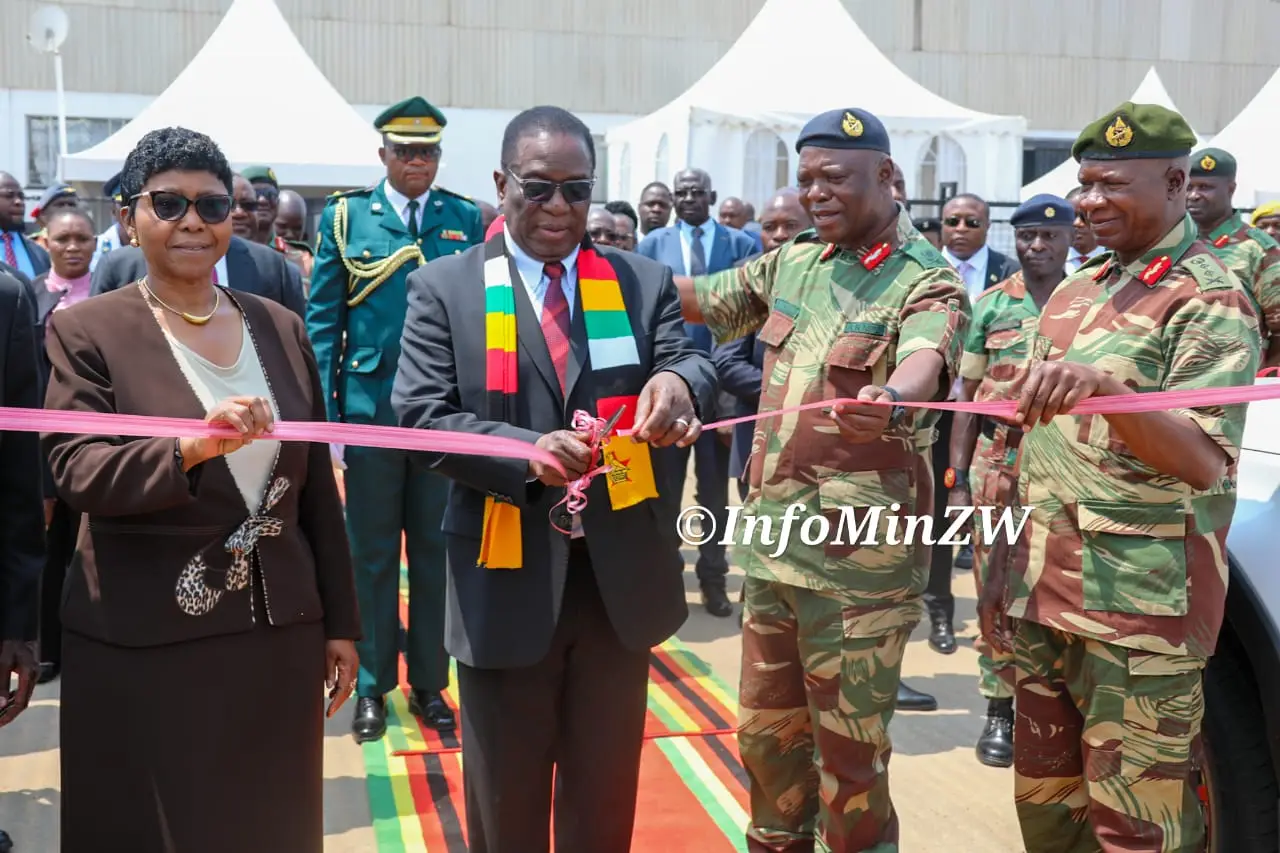By Staff Reporter
As the succession battle within Zanu-PF intensifies, President Emmerson Mnangagwa has moved to stave off any potential coup by awarding more than 700 senior army officers top-of-the-range, all-terrain vehicles, his spokesperson George Charamba has confirmed.
Mnangagwa’s decision follows his absence from the United Nations General Assembly amid intelligence reports suggesting the possible arrest of his loyalists, controversial business tycoons Kudakwashe Tagwirei, Wicknell Chivayo, Delish Nguwaya, and Paul Tungwarara.
The four were reportedly named in a corruption dossier Vice President Constantino Chiwenga presented at the recent Zanu-PF politburo meeting in Harare.
Haunted by the spectre of November 2017, Mnangagwa appears to be taking no chances, seeking to appease the military, the traditional kingmakers in Zimbabwean politics.
“His Excellency the President today handed over 102 vehicles to the ZDF in order to capacitate the Defence Force. All told, the ZDF will get over 700 vehicles, the first ever time that ZDF has received such a consignment within a short-time bracket,” Charamba announced on his X account on Monday.
The timing has raised eyebrows, with many viewing the gesture as a clear coup-proofing strategy.
Charamba defended the move, framing it as a fulfilment of service conditions for senior officers: “The vehicles, which are part of the conditions of service for senior army officers, plug a gap in conditions of service for officers, some of whom had gone for a couple of years without a full set of their entitlements.”
However, he also revealed the allocation is structured as a loan. “In public sector parlance, these vehicles are called personal issue service vehicles. What that means is that the vehicle is personal to the haver, who is also allowed to buy the vehicle after a stipulated time.”
The development has already sparked public scrutiny, with critics demanding clarity on the source of funds and whether the purchase was accounted for in the 2025 national budget.
Observers warn Zimbabwe is increasingly resembling a mafia-style economy where political elites distribute vehicles and perks like candy to loyalists and strategic allies in order to cling to power.
